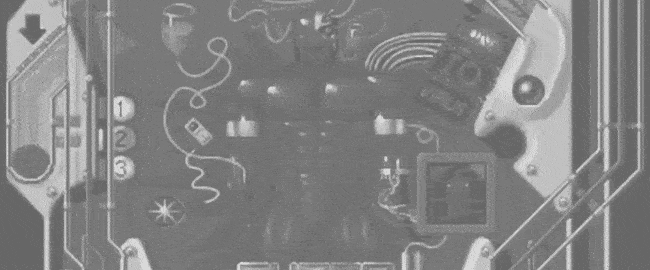
Bandcamp’s in-person record store in Oakland, California.
There was a big head-scratcher of a deal last week in the music industry, and it seemed to annoy anyone with more than a passing interest in indie rock.
As a big fan of indie rock, I of course must weigh in. Epic Games buying Bandcamp makes no sense on paper; it feels like ammo in a war for ethical clout that none of the artists on that service signed up for.
But at the same time, I can’t help but think of the fact that Bandcamp totally reflects the shareware roots of Epic Games.
As I wrote in my piece about Epic Games in 2020, the company literally started out as an indie company with an individual-minded shareware model. It just happened to grow really, really big, thanks in no small part to the fact that the company had built some early goodwill, and later, some really innovative tech.
ZZT and Jill of the Jungle are as indie as you can get, with ZZT being a purely text-based game at a time when VGA graphics were already common. That the company that made this evolved into the company that made Fortnite is really freaking weird. But I think that context is important to note whenever talking about the moves that Epic makes. Love or hate it or feel its legal efforts against Apple were totally disingenuous, it is still operated by the same guy who was accepting checks out of his own mailbox in 1991.
Now, you could note that seemingly every company has roots like these, and you’d be right—Apple started in a garage, and look at how arrogant Steve Jobs ended up being, right?—but I do think (as I said in the 2020 piece) that even with Epic’s moves into hyperrealistic game engine design and free-to-play cash-machine megagames, Tim Sweeney remembers being that guy who was selling little games out of his house. He knows what it’s like to work around the status quo of the marketplace. (He also knows what it’s like to operate a AAA game publisher, rather than just a developer, something that the company announced in 2020, but I digress.)

A reminder that Epic used to be indie, too.
A lot of that may be lost on modern creators, however. I think the reason why the acquisition of Bandcamp rubbed a lot of people the wrong way is because, honestly, someone bought Bandcamp. It is no longer as indie as the bands that appear on its website.
While not really citing the fact that Epic has roots as the same kind of indie developer most musicians on Bandcamp are, Pitchfork does note the ethos similarities. “Beyond the lawsuits, Epic’s willingness to challenge the big boys has benefited everyone,” Matthew Ismael Ruiz wrote.
I guess we can see it as sort of a positive thing that the buyer wasn’t one of the traditional big tech companies like Google or Epic’s nemesis, Apple, nor was it a record label or someone deeply involved in the music industry already. In a way, Epic can bring fresh eyes to the problem of promoting the needs of the creator. If this was Epic’s goal, there probably were much better acquisition targets for this, like Patreon or Ko-Fi, but I do think at the same time, this is a strong base for Epic to build out new types of ambitions. As the Pitchfork piece notes, Epic may actually need Bandcamp more than the other way around:
The Epic Games Store has struggled to compete with more established marketplaces run by Sony, Microsoft, and fellow developer-turned-platform Valve, whose Steam Store represents the gold standard of digital retail in PC gaming. The store has also been plagued by clunky digital rights management and a buggy interface, and their tactic of luring developers with exclusive deals has largely backfired, garnering ill will and accusations of bribery from gamers. Bandcamp, with its ease of use and patina of goodwill, is everything the Epic Games Store is not.
But I hope, now that Epic has done this, they actually take a little bit of time to understand what they bought and why it works—and why breaking it would ultimately be bad for everyone. Bandcamp is the place you go when you want to support indie bands with no middleman, or as small of a middleman as humanly possible.
Epic remembers its roots. Now would be a bad time to forget them.
Time limit given ⏲: 30 minutes
Time left on clock ⏲: 12 seconds



